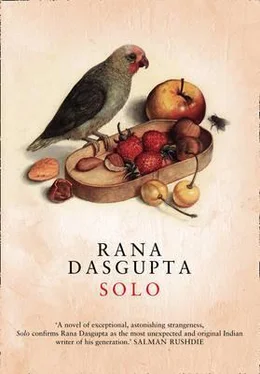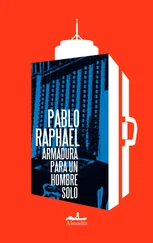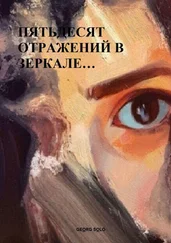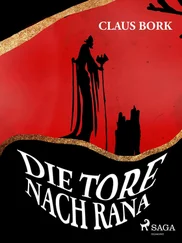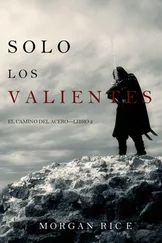In the car on the way back, they listened to a monologue by the leader of the Russian delegation. He had Tatar features and thick limbs, and alcohol made him joyful.
‘Your country is such a simple problem,’ he said. ‘The Soviet Union: twelve time zones. How can you ever solve such a thing? Bulgaria is so small, and your weather is gentle. That’s why your socialism has much better alcohol than ours, and your women look so modern.’
Ulrich was silent, looking forward to the moment when he would drop them at their hotel, and his responsibilities would be over. But when they arrived, the Russians were adamant that he should not leave.
‘Will you make us drink alone? We have no new jokes to tell each other!’
Reluctantly, Ulrich let the chauffeur go, anxious about what the rest of the night would hold. In the hotel room, the Russians pulled off their shoes and called for expensive vodka. They poured for him too, though he protested.
‘I don’t drink,’ he said. ‘I don’t like alcohol.’
They roared with laughter, as if it were a joke.
Ulrich began to drink out of conformity, while the leader told stories of his childhood in Minsk. The corners of his tales were jabbed out with cigarettes that he held between his fingers for a long time before he lit them. The others clapped around him and kept the glasses full. Ulrich felt the blood rise in his ears and allowed himself to sink into the cushions. He watched the indefatigable storyteller, who drummed his fingers on his belly, shook his head insanely into his enormous handkerchief, and sighed Ah! when others spoke.
He talked about old films, and how he had kept bees when he was young. He told stories about his first job in a factory, above the Arctic Circle, where he lived in a tunnel underground whose entrance he could never find for snow and the darkness that came for months at a time. At length he broke into verse:
My uncle, in the best tradition
By falling dangerously sick
Won universal recognition
And could devise no better trick .
The wingtips of his cheeks were raised in transport like the roped peaks of a tent, and his cigarette left an aerobatic trail in the air.
How base to pamper grossly
And entertain the nearly dead
Fluffing pillows for his head
And passing medicines morosely —
While thinking under every sigh
The devil take you, Uncle. Die!
They laughed and clapped, and the leader got up from his recline, backslapping and hugging round the room, seizing Ulrich with his powerful arms and holding him for a long while. He sat down and stared open mouthed into his vodka as if it were a miracle.
‘When we got permission to come to your factory, we knew we would drink a lot,’ he said happily.
‘But enough Pushkin,’ said one of the others, his socked feet resting on the wall. ‘We should have Bulgarian poetry!’
‘Geo Milev! The great one-eyed Bulgarian. Give us one of his!’
‘I don’t know any poetry,’ said Ulrich weakly.
They did not believe him, and took him for shy.
‘Drink more!’ they said. ‘You are far behind.’
Ulrich was already drunk, and in the clarity of vodka he felt his usual judgements collapsing. He looked at these men, men he would normally despise for their drink and their uncouth dissipation, and this evening he felt ashamed before their joy. He wondered what he carried inside him that could compare to such exuberance. He became despondent, wishing he were other than what he was.
He made a forced attempt at abandon.
‘Shall I call some girls?’
The three men roared in unison. The Tatar raconteur screwed his face into love-agony at the ceiling, and froze for a second as if he might topple backwards with joy.
The old tinnitus struck up in Ulrich’s ears, and he wondered how he would deliver what he offered. But his companions had already moved on to an exchange of jokes, the girls forgotten, as if all possible pleasure had been won from the mere suggestion.
‘They wanted to open a striptease club in the Kremlin Palace. The applications were made, permission was granted, billboards were put up around Moscow. But no one showed up.’
Ulrich ordered more vodka, looking for approval.
‘Central Committee called up in the morning. Why had the project failed? Telephones rang across Moscow. The report came back: the organisers were bewildered. The striptease club was well organised and all the striptease artists had a solid party record. In fact most of them were Bolsheviks from 1905 and some were even personal friends of Lenin!’
They seemed to have an endless supply of jokes, and the banter went back and forth. The hotel ran out of vodka, and they ordered rakia instead.
‘ … so Stalin opens the door and catches the couple in flagrante and he says to the man, I am very attached to my pipe. But sometimes I take it out of its hole!’
As the night wore on, Ulrich became so awash with drink that his gloom dissolved, and he grew happy on his companions’ cheer. He felt confident, and proposed an anecdote of his own. He told a story about a young man who had to slaughter a pig in a small Bulgarian town. It had an uncanny ending. He talked with some power, and they all listened.
‘Did that happen to you?’
‘No,’ said Ulrich. ‘It’s something I dreamed up.’
‘He is a poet!’ they said. ‘No wonder he is so quiet!’
‘The quiet ones are the most dangerous!’
The night expired somewhere there, and when Ulrich woke up he was still lying in his place on the cushions. He slipped out, unnoticed by the snoring Russians, and went home to clean himself up. He met the men at the factory later, and looked at them remorsefully, as if he were a guilty lover.
In their official conversations, the Russians showed themselves in a very different light, and as the week drew on Ulrich found it difficult to believe he had shared such a time with them. They were hard nosed and inflexible, and they rarely smiled.
Their approach to technical problems was crude. To increase the factory’s productivity they wanted simply to build more of the same, introducing three more gigantic kilns alongside the existing one, lined up together like the microphones under Todor Zhivkov’s chin. They did not give scientific justifications for their ideas, and when they were challenged they only repeated them more gruffly, with added ideological weight:
‘Worldwide capitalist enterprise will be run into the ground!’
On the first day, Ulrich listened silently to what they had to say, but then he became more bold. He said this factory was built in the 1930s, and many new production methods had come in since then. He said they could achieve a substantial increase in production simply by replacing the coal-fired kiln with a new fluidised bed reactor that would run on gas. Natural gas had become very cheap, and the new technique gave a more efficient reaction.
The Soviet experts were uncertain about Ulrich’s proposal, but Comrade Denov praised it in such a way that it soon seemed as if it had originated with them, and not with Ulrich.
The Russians condescended, happy to have been of service. They seemed never to take off their thick coats, though it was spring, and hot enough for ceiling fans.
A deal was struck, and Comrade Denov was delighted. He said to Ulrich, You have worked a revolution in our factory , and he forgave him the tremendous cost of his entertainment. A Bulgarian — Russian Friendship Party was held on the last night. But Ulrich did not try again to find his way back into the Russians’ conviviality.
The ancient kiln was lifted out with cranes on to a long truck. The new, modern reactor was much smaller, and the factory looked strangely vacant.
Читать дальше
Конец ознакомительного отрывка
Купить книгу
